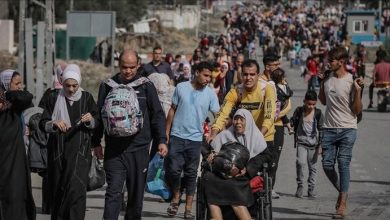G7 countries pledge to impose severe economic costs on Russia, phase out oil imports

Condemning Russia’s “unprovoked, unjustifiable and illegal military aggression” against Ukraine and the “indiscriminate attacks” against civilians and civilian infrastructure, the G7 countries on Sunday pledged to continue imposing severe and immediate economic costs on President Putin’s regime for the “unjustifiable war”.
The strong statement came after a virtual meeting of the G7 leaders, who were joined by Ukrainian President Volodymyr Zelenskyy.
“Seventy-seven years later, President Putin and his regime now chose to invade Ukraine in an unprovoked war of aggression against a sovereign country. His actions bring shame on Russia and the historic sacrifices of its people,” the statement read.
Accusing Russia of violating the international rules-based order, particularly the UN Charter, the statement called on all “partners to join our (G7’s) support for the Ukrainian people and for refugees, and to help Ukraine to rebuild its future.” “We reiterate our condemnation of Russia’s unprovoked, unjustifiable and illegal military aggression against Ukraine and the indiscriminate attacks against civilians and civilian infrastructure, which has resulted in terrible humanitarian catastrophe in the heart of Europe,” the statement read.
“We are appalled by the large-scale loss of human life, assault on human rights, and destruction that Russia’s actions have inflicted on Ukraine,” the statement added.
The statement also highlighted the “unprecedented package of coordinated sanctions” that “has already significantly hindered Russia’s war of aggression by limiting access to financial channels and ability to pursue their objectives.” “We will continue to impose severe and immediate economic costs on President Putin’s regime for this unjustifiable war,” the statement said, before announcing the G7’s commitment to a list of five measures.
“We commit to phase out our dependency on Russian energy, including by phasing out or banning the import of Russian oil. We will ensure that we do so in a timely and orderly fashion, and in ways that provide time for the world to secure alternative supplies,” the statement said.
It added that the G7 would work with partner countries to ensure stable and sustainable global energy supplies and affordable prices for consumers as the transition from Russian energy and fossil fuels takes place.
Other measures included prohibiting or preventing “the provision of key services on which Russia depends” to isolate Russia’s economy, “action against Russian banks connected to the global economy and systemically critical to the Russian financial system” and imposing “sanctions on additional individuals” who support President Putin in his war effort.
The G7 countries also pledged to continue their efforts “to fight off the Russian regime’s attempts to spread its propaganda.” Talking about the economic disruption caused by the war, especially the food crisis, the G7 statement said, “we will address the causes and consequences of the global food crisis through a Global Alliance for Food Security, as our joint initiative to ensure momentum and coordination, and other efforts.” The G7 and Ukraine stand united in this difficult time and in their quest to ensure Ukraine’s democratic, prosperous future. We remain united in our resolve that President Putin must not win his war against Ukraine, the statement said.
Speaking at the conference, Ukrainian President Zelenskyy “underlined the strong resolve of Ukraine to protect its sovereignty and territorial integrity,” the statement said.
“He stated that Ukraine’s ultimate aim is to ensure full withdrawal of Russia’s military forces and equipment from the entire territory of Ukraine and to secure its ability to protect itself in the future and thanked G7 members for their support,” the G7 statement informed.
On February 24, Russia launched a military operation in Ukraine, three days after recognising the Ukrainian breakaway regions of Donetsk and Luhansk as “independent republics”. The Russian Ministry of Defense maintains that the operation is targeting Ukrainian military infrastructure only. In response, Western nations imposed comprehensive sanctions against Russia.





